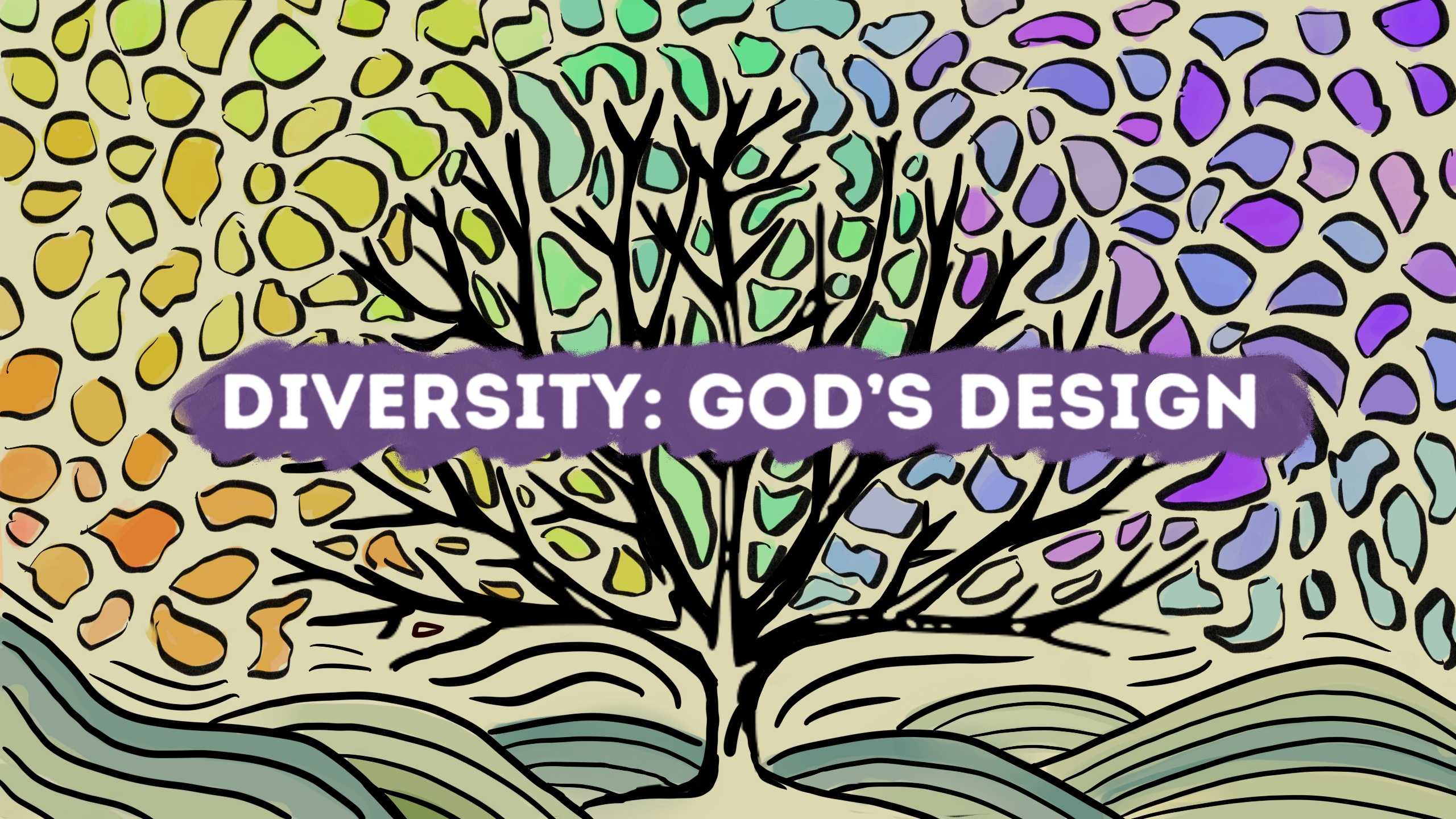
“Everyone was there – all nations and tribes, all races and languages.”
Introduction
Welcome to this exciting and challenging four-week study, Diversity: God’s Design. This is a basic introduction to the celebration and acknowledgment of difference. We are peculiar people gifted with the invitation to go out from ourselves and be in relationship with others who are also peculiar masterpieces of the Divine Creator. Choosing to see the beauty in the diverse world God has created is a gift.
When we are around the same people all the time with similar values, perspectives, practices and traditions (culture), it can be difficult to adapt to other cultures. We are all carriers of culture. We bring with us aspects of our culture wherever we go. Some aspects of culture are attitudes, beliefs, customs, rituals, behaviors, faith/religion, food, art/theater and attitudes. Some of these aspects of culture are easier to identify and adapt to. The aspects of culture that are less identifiable we call subjective culture. Subjective culture is often the unspoken aspects of culture that a person learns through experiences, verbal communication and relationship-building.
Do you remember the last time your eyes had to adjust from being in a dim light to bright? At first, the change is startling, but after a while, we adjust and become more comfortable. This curriculum is an invitation to adjust our “lighting.” It is the beginning of a journey toward a mindset that sees difference and diversity as a gift. It centers intergenerational voices and perspectives from the Mennonite church by sharing biblical narratives and personal experiences that invite curriculum participants to take notice of how and why we should join the journey of celebrating diversity.
“What a wildly wonderful world, God! You made it all, with wisdom at your side, made Earth overflow with your wonderful creations.” Psalm 104:24 (The Message)
The purpose of the curriculum
This curriculum will use a biblical framework to introduce the importance and relevance of increasing intercultural competency as part of Christian formation. Each lesson will explore a biblical passage emphasizing a learning about diversity, inclusion and intercultural competence.
This curriculum was created with an intergenerational audience in mind, for use in faith-based settings, such as churches, Mennonite schools and small groups, or for self-study.
Value and importance for the church
The Intercultural Development Inventory (IDI) is an assessment tool that measures intercultural competence. IDI qualifying administrators have facilitated workshops in Mennonite schools and congregations across the country for the past seven years. One of the surprising findings for most individuals who participate in the IDI is the disconnect between a person’s competency to engage with cultural difference and their perception. Over 60% of people overestimate their cultural competency and mistakenly think that travel or mission experience translates into cultural competency. These are only opportunities to begin the work. Intercultural competence begins with awareness of one’s own culture and the ability to recognize and value the difference in other cultures. The introduction to this work is a primer for self-awareness and mindfulness about diversity.
The Bible is full of amazing stories and sacred writings that provide imagery and a framework for the beauty of diversity and hope. Stories about crossing borders, welcoming strangers, developing self-acceptance and becoming family are interwoven throughout Scripture. The Bible underscores the importance of increasing our intercultural competency and shows us that God’s ultimate vision is to celebrate the beauty and diversity of all God’s people being together (Revelation 7:9).
Each of these terms, diversity, inclusion and intercultural competency, are interwoven throughout the curriculum and summarized in our glossary of terms.
We are all different, fearfully and wonderfully made.
This curriculum is a compilation of personal experiences, biblical text, sermonettes and engagement opportunities that invite participants to explore an introduction to the value of difference.
How to use this curriculum:
- As an introduction to awareness that diversity in the Bible is a narrative for transformation and development.
- For personal reflection and response.
- To start a conversation about diversity and the church.
- To provoke renewed thinking about culture, difference and value. (See glossary)
- As an invitation to continue learning and discovering how the Scripture demonstrates opportunities for intercultural learnings and appreciation.
- For personal observation about your willingness to fully engage with the curriculum.
What to avoid when facilitating this curriculum:
- Having all the answers.
- Judging different perspectives.
- Monopolizing the conversation.
- Speaking for other(s) without first-hand knowledge, permission or invitation.
Objectives:
- Identify a biblical framework that encourages a renewed perspective on engaging with people and communities that are non-homogeneous.
- Illustrate learning and engagement opportunities that celebrate differences of culture and experiences.
- Explore and discuss biblical narratives from a cross-cultural, multicultural and intercultural perspective.
- Introduce the value of intercultural learning as a biblical concept for young adults in Mennonite churches and schools.
- Inform young adult Christian leaders of the importance of intercultural competency.
- Recognize biblical narratives that value inclusion.
Benefits of developing intercultural competence:
- Decrease in generalization of people groups.
- More authentic relationships.
- Appreciating difference that leads to creativity, a deeper understanding of ourselves and increased empathy.
- Less unhealthy conflict around difference.
- Increase positive feelings, honest self-awareness, and appreciation of and respect for people of different cultures.
- Professional effectiveness.
- Elimination of disparities between dominant and non-dominant culture members.
- Improved community relations in multicultural environments.
- Reduced culture-contact stress and related ailments. This could show up as an increased stress load or reduced ability that depletes the reserve capacity of individuals, increasing their vulnerability to health problems, such as tension headaches, joint pain and anxiety related to cultural inadaptability.
Overview of weekly sessions:
Each session is designed to be 45-60 minutes and will include:
- A featured sermonette video and biblical passage.
- A video sharing a young adult’s perspective.
- A spoken word poetry video.
- Reflection and engagement questions.
- Weekly action steps.
- Supplemental resources.
We want to know: Discussion questions
These discussion questions were written by the curriculum’s young adult facilitators (Abby, Erik, Felix and Laura) and are recommended for use throughout each session.
Recommendations for using the discussion questions:
- Facilitators select one or two question(s) to discuss and revisit during each week’s session.
- Invite participants to use the same question(s) as part of their personal prayer and devotional time during the week. After a week of prayerful reflection, invite participants to observe thoughts and mindset regarding the questions. Did they change? What mindful moments did you have about yourself, the church and community? Did you have different answers and a different perspective after a week of pondering and praying?
Questions:
- What factors indicate to you that you are in a brave space?
Note: A brave space is an environment that acknowledges the challenges that both participants and facilitators have when attempting to discuss difficult and/or sensitive topics such as race, power, privilege and the various forms of oppression for the purpose of learning. Essentially, we create a space where everyone actively participates. - What kind of differences are celebrated in your community? What kind of differences lead to discomfort or inconvenience in your community?
- How easy is it for newcomers to recognize your church community’s values related to social justice? Are these values reflected in the budget or in the staff?
- Where do your biases stem from? Everyone carries biases, but can you identify where yours come from?
- Stories impact us. What stories have influenced the way you respond to others?
- What does a Spirit-infused life look like?
- What behaviors or words do you use that unintentionally make other people feel excluded?
- What kinds of differences are you or your church/community unwilling to acknowledge and celebrate?
- How can you and your church/community acknowledge and celebrate the differences you see in the people around you?
- How can you bridge the gap between yourself and others who are not as far along in their intercultural competency journey?
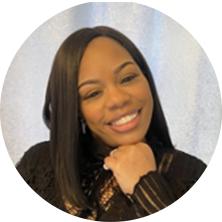
Hyacinth Stevens, primary curriculum writer, is a wife and mother of four children. She has a heart and commitment to bring the Good News wherever she goes. Stevens has served the church as a pastor, teacher, mentor, and program developer. Her ministry model to create opportunities that foster transformative discipleship, and she is committed to the ministry of reconciliation with an emphasis on intercultural bridge-building. Stevens is a qualified administrator and coach for the Intercultural Development Inventory (IDI). She works with congregations and faith-based organizations to implement biblically based models for intercultural development. For more than a decade, Stevens has been on various organization and denomination boards. She is a member of the New York City District Oversight Team and works for MCC East Coast as the executive director. She holds a bachelor’s degree in education and Bible and master’s degrees in both administration and public affairs.
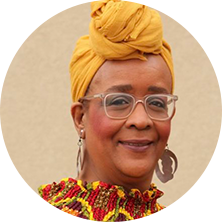
Michelle E. Armster is the executive director for Mennonite Central Committee (MCC) Central States. She previously worked for MCC for 12 years as the director of Mennonite Conciliation Service and co-director for the Office on Justice and Peacebuilding. She has extensive training and experience in meditation, facilitation, conciliation, restorative justice, arbitration, victim/offender mediation, anti-racism and alternatives to violence. Armster has served on various community boards, such as the YWCA, The SpiritHouse Project, Inc., Lancaster Mediation Center and NAACP. She graduated from Lancaster Theological Seminary with a master of divinity degree in 2007. She has served as a co-pastor of St. Andrew United Church of Christ and as the associate pastor for community outreach at Blossom Hill Mennonite Church, both in Lancaster, Pennsylvania. Armster presently resides in Wichita, Kansas, and is active with Wichita Griots, an African American Storytellers organization, a member of NABS (National Association of Black Storytellers) and an adjunct professor at Bethel College. Michelle is currently enrolled at Berkeley School of Theology and pursuing a doctor of ministry degree.
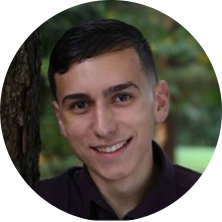
Felix Perez Diener is a sophomore at Harvard College studying philosophy and computer science. Baptized into the Mennonite Church at age 16, Diener is currently living in Goshen, Indiana, and doing classes remotely. At Harvard, he serves as co-vice president of Harvard College Faith & Action, one of the many active Christian fellowships on campus. He also is on Red Line, Harvard’s ultimate frisbee team. In his free time, Diener enjoys working on personal programming projects and speed-solving the Rubik’s Cube. He is excited about discovering the plans that God has for his life!
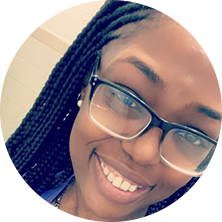
Tiara Downer serves as the worship coordinator at King of Glory Tabernacle located in the Bronx, New York. She has served two terms as an MCC summer service worker and represented MCC East Coast at the Global Youth Summit at Mennonite Church World Conference. Downer is passionate about the education and development of youth and is a community life mentor for youth and young adults. Downer is dedicated to engaging and resourcing youth through mentoring, education and the creative arts of dance and spoken word (poetry). For the last decade, she has worked as a tutor and, in recent years, the program director for King of Glory’s community and church collaborative afterschool program, Project Charisma. She holds a bachelor’s degree in social science and is working toward receiving her master’s degree in early childhood education.
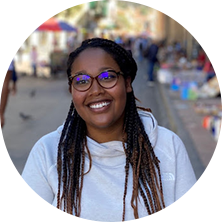
Abby Endashaw works for Mennonite Central Committee (MCC) Central States as the young adult programs coordinator. Her work with MCC emphasizes community-centered programming and anti-racism education, as well as supporting local partners doing peace and justice work. Before joining the MCC Central States staff, she earned a master’s degree in professional counseling from Dallas Baptist University and worked as a children’s play therapist and therapist for trauma survivors. When Endashaw’s not planning young adult programs or hanging with MCC’s international volunteers, she is hosting her pop culture-themed podcast or tucked into a new book!
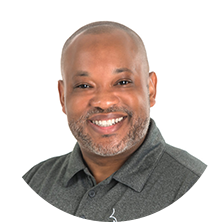
Glen Guyton is the executive director of MC USA. He is the first person of color to serve in the role. Glen has almost 30 years of leadership experience in the denomination. Guyton joined the MC USA Executive Board staff in 2009 as the Director of Intercultural Relations, and for the next serval years, held various staff roles until becoming Executive Director. He was an officer in the United States Air Force when he first joined the church. He credits several Mennonite leaders for teaching him what it means to be an Anabaptist Christian, especially Bishop L.W. Francisco III, pastor at C3 Hampton, and Titus Peachy, formerly of Mennonite Central Committee, which led him to leave the military and commit to nonviolence. Guyton holds a bachelor’s degree in management from the United States Air Force Academy and a master’s degree in education from Regent University. Guyton is the author of two books: “IDEAL ME: Discovering Your Call in a Cluttered World,” a cultural guidebook for youth and young adults, and “Reawakened, Activate Your Congregation to Spark Lasting Change,” which explores eight keys to developing the abilities of congregations to bring healing and hope to their communities. He is a member of San Antonio Mennonite Church in Texas.
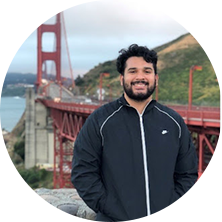
Erick Josue Martinez was born in the heart of Los Angeles, California, surrounded by immigrants and grew up understanding that though he may not always fit into the mold others set for him, that is not his problem to fix. Martinez comes from a beautiful family and was raised by immigrants. He attends Goshen College with the dream of becoming a financial planner to help those people with no resources in his community. He wants to live the life that his parents sacrificed theirs for and only wishes to make the world a better place for all.
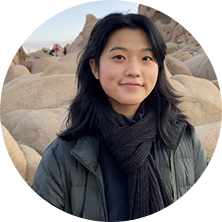
Lynn Hur is currently a senior at UCLA studying Sociology and Community Engagement and Social Change. She is active in sustainability work and green space accessibility through the UCLA Facilities Commission. She is also a board member of Full Circle Project of Pacific Southwest Mennonite Conference. In her free time, she loves to play with her dog and explore the city for good local cafes. Hur designed the curriculum logo.
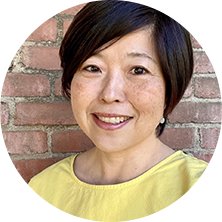
Sue Park-Hur is the denominational minister for Transformative Peacemaking for Mennonite Church USA, overseeing the peace and justice related issues. She also supervises Women in Leadership. Park-Hur co-directs ReconciliAsian, a peace center in Los Angeles specializing in conflict transformation and restorative justice for immigrant churches. A former co-lead pastor and co-church planter, her passion is to see the church living out the shalom of the gospel. Park-Hur is trained in Intercultural Development Inventory and is a Strategies for Trauma Awareness and Resilience (STAR) practitioner. She attends Pasadena Mennonite Church in Pasadena, California.

Laura Pauls-Thomas (she/her) was born and raised in Lancaster County, Pennsylvania and grew up in a white, majority-Mennonite context. Pauls-Thomas attended Eastern University (St. Davids, Pennsylvania) and graduated with her bachelor’s in communication studies and Spanish in 2017. She has worked for Mennonite Central Committee’s East Coast region since 2017 in a communications role. Pauls-Thomas attends East Chestnut Street Mennonite Church (Lancaster, Pa.).
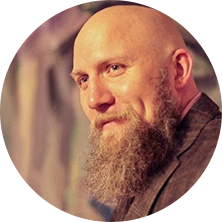
Jason Storbakken (he/him/his) serves as pastor at Manhattan Mennonite Fellowship in New York City. He is author of “Radical Spirituality: Repentance, Resistance, Revolution” (Orbis) and ”Bowery Mission: Grit and Grace on Manhattan’s Oldest Street” (Plough). Storbakken and his partner, Vonetta (founder of the Radical Living garden-to-table youth program), are both founding board members of the Brooklyn Peace Center.


